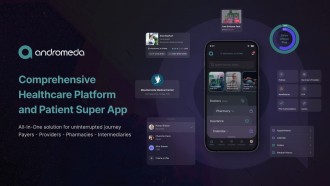Apple's latest security update, released at the end of September, is a huge eye-opener. Going beyond discussing its products and services, the elite smartphone brand made gadget users understand the value of privacy and the state of data protection technology.
In its official statement, Apple recalled that the iOS platform has always been designed with security at its core. While the tech company learns from its rich and excellent past to create the best possible mobile platform, it remains conscious of the security hazards of the desktop environment. Apple's entirely new architecture has a tighter approach to mobile security and protects the entire system by default.
Apple's statement boasts [pdf] that in every iOS device, the hardware, software and services are carefully created and combined to work together for maximum security and transparent user experience. iOS protects not only the device and its data at rest, but the entire ecosystem, including everything users do locally, on networks and with key Internet services.
The company founded by Steve Jobs goes beyond discussing its products and services to laying out its philosophy on data collection, which distinguishes the brand from rivals in the tech industry.
In a nutshell, Apple assures users that it is not interested in their private information, even as it must use more of that data to deliver personalized products.
"We knew coming in that building a personalized news product could be very sensitive -- and the first thing we thought about was we really don't want to associate news with your personal Apple account," says Jane Horvath, Apple's senior director of global privacy.
In September, Apple News was launched. The app delivers a stream of headlines right onto the home screens of the iPhone. In a way, the app is rivaled by Facebook, Twitter, and Google News which have been using algorithms to present the users with headlines fitted to their taste.
Apple does things differently. It does not peep into the user's data; instead, its stories are curated by a team of journalists.
"We don't build a profile based on your email content or web browsing habits to sell to advertisers," chief executive Tim Cook wrote in a letter that introduced its privacy website last year. "We don't 'monetize' the information you store on your iPhone or in iCloud."
The company also discussed its standard operating procedure when a third-party, such as the government, requests for a user's data.
According to the company, the third-party must submit a search warrant, but even then, the company still reserves the right to deny the disclosure of data. Only in extreme cases where human life is involved, will Apple's legal team allow a user's data to be disclosed.
At a time where a reader may be flooded with smartwatch ads after reading an article about a watch release, a company like Apple is a much-needed player in the industry.
The privacy pledge is also a smart move for the brand whose consumers are the elite market who is more conscious of their privacy.
Countless tech companies have built their businesses by enticing people with clever apps in exchange for the user's data. The biggest threat to a user whose data is being tracked by a company is the possibility of the data falling into the wrong hands despite the rigid security measures taken by tech companies.









